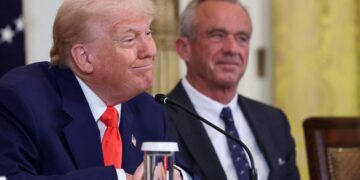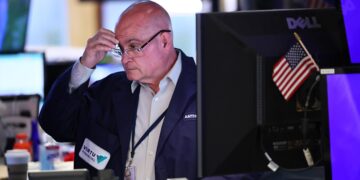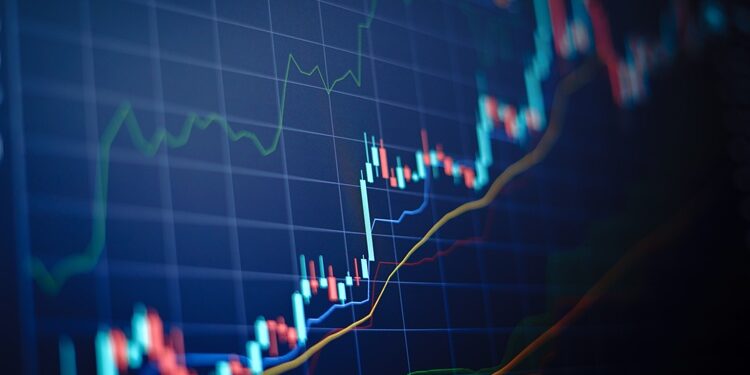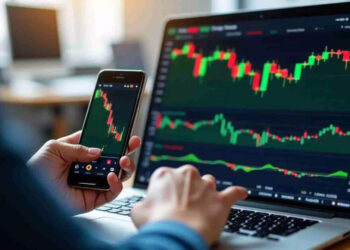Sir Isaac Newton famously said of the stock market that he could calculate the motion of the heavenly bodies, but not the madness of people. We have to wonder what he might have made of today’s stock market. At a time when the market is being confronted with unusually troubling geopolitical and economic risks, it is partying as if there were no tomorrow. Indeed, today’s stock market valuations are close to the record levels that prevailed shortly before the bursting of the dot.com bubble in 2000.
Start with the geopolitical risks to which the stock market is turning a blind eye. The Iran-Israel conflict presently underway could portend the Middle East descending into chaos that could lead to a major oil price shock. Yet, the market seems to be discounting the possibility that Iran might block the Straits of Hormuz through which 20 percent of the world’s oil consumption passes or that it once again might attack Saudi Arabian oil installations.
It also seems to have escaped the market’s notice that relations between the United States and China appear to be at a low point or that China keeps flexing its naval muscles in the China Sea and in the Taiwan Strait. Never mind that Taiwan produces 50 percent of the world’s semiconductors and any disruption in that supply would deliver a body blow to the world economy. Never mind too that US industry has come to be highly dependent on China’s rare earth metals and batteries that China is now weaponizing in its trade war with the United States.
More troubling are the economic risks to which the stock market seems to have become inured. Never mind the chaotic and incoherent import tariff and budget policies that have characterized the Trump 2.0 administration’s first six months in office.
The wild swings in US import tariff policy have engendered an atmosphere of heightened economic uncertainty that is bound to impact investment and household consumption decisions. It also risks delaying inflation’s return to the Fed’s two percent target. Meanwhile, Trump’s One Beautiful Bill now risks putting America’s public finances on an even more unsustainable path than they were before. According to the Congressional Budget Office, Trump’s budget proposals will add around $3 trillion to the US budget deficit over the next decade. That will soon take the US public debt in relation to the size of the economy to a level well above that reached immediately after the Second World War.
The market also seems to be unfazed by the numerous ways by which Trump seems to be undermining foreign investor confidence in American economic exceptionalism. As if undisciplined budget policies were not sufficient reason for foreign US Treasury bondholders to fear that the US might try to inflate its way out of its debt problem, Trump is exerting enormous pressure on the Federal Reserve to cut interest rates aggressively. He is doing so even at a time when inflation remains above the Fed’s inflation target.
In addition, Trump is instilling fear in foreign bondholders by including a clause in his budget bill that would allow him to impose a tax of up to 20 percent on their interest earnings from US Treasury bonds if he deems their country to be following tax policies unfair to US interests. Trump officials also periodically muse about forcing foreign Treasury bondholders to exchange their bonds for a 100-year zero coupon bond. By so doing at a time when the country is highly dependent on the kindness of strangers to finance its twin budget and trade deficits, he seems to be inviting both a US government bond market and a dollar market crisis.
The stock market’s seeming indifference to all of these troubling developments is all the more surprising considering the recent strange behavior of the 10-year Treasury bond market and of the dollar. Since September 2024, 10-year Treasury bond yields have risen by around 75 basis points despite the Fed having cut its interest rate by 100 basis points. Similarly, since the start of the year, the dollar has dropped by around 10 percent even though the US has raised import tariffs to their highest level in 100 years and the short-term interest rate differential in favor of the US has increased. Further signaling that foreign investors are already starting to lose confidence in America’s economic exceptionalism has been the 30 percent spike in gold prices since the start of the year.
All of this is not to say that any of the geopolitical and economic risks mentioned above will certainly materialize. However, it is to say that the stock market is behaving irrationally by trading at close to record valuations as if there were close to a zero chance that anything untoward is going to happen to the economy over the next year.

















